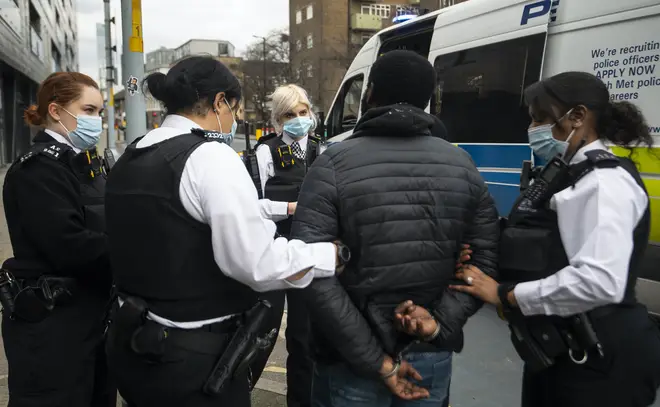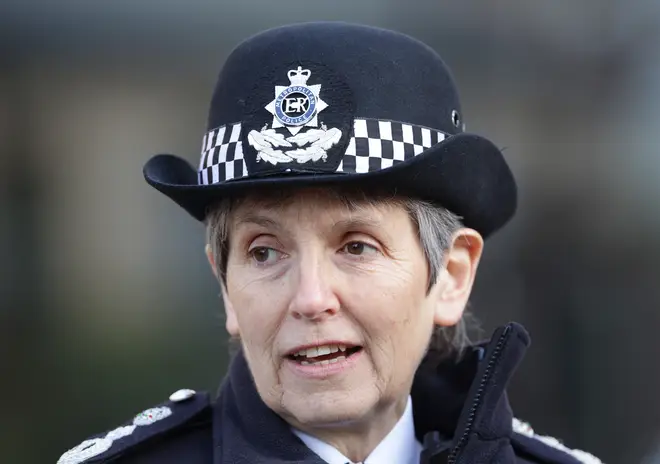
Nick Abbot 12am - 1am
14 May 2021, 07:40 | Updated: 14 May 2021, 08:49

Catching violent criminals isn’t always easy. This week, we spent eight hours on patrol with the Met's Violence Suppression Unit (VSU) in Islington and Camden.
During that time, we got several calls to reports of young men carrying machetes, and to various robberies, but by the time we arrived at the scene, the suspects had vanished. We didn't manage to catch a single one.
Partly it's the luck of the draw – some days, police assured me, it is non-stop and they catch plenty of criminals. And the statistics don't lie. In the year since they began operations last year, the Met's Violence Suppression Units have made over 6,000 arrests for violent offences, seized over 1,000 knives, and 81 firearms.
CALL THE COMMISSIONER: Watch live from Friday at 8am
READ MORE: Met recruiting thousands more officers in crackdown on violent crime
Another issue is that violent criminals are wily. They travel light, and have increasingly ditched clumsy mopeds for light weight electric bikes, which make them much harder to catch. The VSUs are starting to take to the streets on bikes themselves, and not without success.
But another unavoidable factor is that you can’t catch criminals on the run if you can't drive your car after them.
Whilst we were on patrol in Islington, searching for several men reportedly carrying machetes, we came across bollards blocking our way. They were part of one of the many Low Traffic Neighbourhoods that have been installed across the country.

"If we're chasing four people with machetes and we come around the corner and I can't go anywhere,” one of the officers told me, "well then that's four people with machetes that have got away".
Anecdotally, police officers report that this is a fairly regular problem, and also that criminals have learned to use the terrain to their advantage. They know if they run into a Low Traffic Neighbourhood, chances are the police can't follow them.
Police officers of course recognise the potential benefits of reducing traffic to make streets safer for pedestrians and cyclists.
Not to mention cutting pollution. But the question is whether, in addressing one safety issue via the creation of LTNs, councils have inadvertently provoked another.